The Nobel Prize is considered one of the highest honors a human can receive on earth. The Nobel Prize committee choices winners each October in the fields of physics, chemistry, literature, economics, medicine, and peace. These prizes, however, are sometimes handed out with a good dose of controversy. Let’s look at a few of the more controversial Nobel Prize winners.
Barack Obama
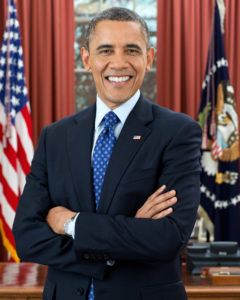
Just nine months into Obama’s term as President of the United States, he was nominated for Nobel Peace Prize. Many argued that this was a premature decision considering that Obama had not accomplished anything through his position yet. Years later, even the former director of the Nobel Institute, Geir Lundestad seemed to agree. “Even many of Obama’s supporter’s believed the prize was a mistake. In that sense, the committee didn’t achieve what it had hoped for.”
Yasser Arafat
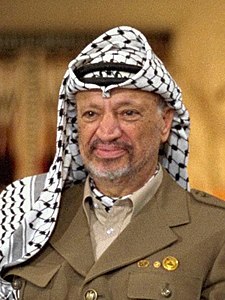
Palestinian leader Yasser Arafat shared the award in 1994 with Israeli Prime Minister Yitzhak Rabin and Israeli Foreign Minister Shimon Peres after the three worked together on the Oslo Peace Accords. The prize was criticized because the Peace Accords actually were not successful at ending the Israel- Palestine conflict. The prize choice was further criticized because Arafat himself had been instrumental since the 1960’s in planning and executing armed attacks in Israel. The prize was actually so controversial that Kare Kristiansen, a member of the Noble committee resigned over the decision.
Henry Kissinger
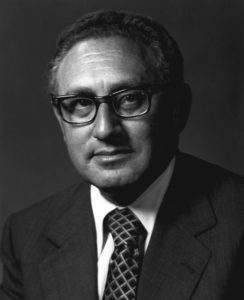 In 1973, the U.S. Secretary of State Henry Kissinger was awarded the prize for his help brokering a cease fire with North Vietnam’s leader Le Duc Tho. Kissinger and Tho were to share the award. The prize was highly controversial and even Le Duc Tho himself refused to accept his part in the prize. Two Nobel committee members resigned their posts after voting against the selected recipient citing as their reason that Kissinger had ordered the bombing of Hanoi during the cease fire negotiations.
In 1973, the U.S. Secretary of State Henry Kissinger was awarded the prize for his help brokering a cease fire with North Vietnam’s leader Le Duc Tho. Kissinger and Tho were to share the award. The prize was highly controversial and even Le Duc Tho himself refused to accept his part in the prize. Two Nobel committee members resigned their posts after voting against the selected recipient citing as their reason that Kissinger had ordered the bombing of Hanoi during the cease fire negotiations.
Antonio Egas Moniz
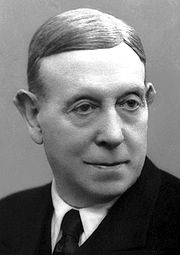 Not all controversial Nobel Prizes are in the Peace Prize category. In 1949 Antonio Egas Moniz was awarded the Nobel Prize in medicine for creating a revolutionary new procedure. This procedure promised to open up a new world of treatment options for those suffering from mental health issues. This procedure promised to help relieve the debilitating symptoms of many mental disorders and give both patients and families rest from the stress of caring for the mentally challenged. His procedure, which now lives in infamy was the lobotomy.
Not all controversial Nobel Prizes are in the Peace Prize category. In 1949 Antonio Egas Moniz was awarded the Nobel Prize in medicine for creating a revolutionary new procedure. This procedure promised to open up a new world of treatment options for those suffering from mental health issues. This procedure promised to help relieve the debilitating symptoms of many mental disorders and give both patients and families rest from the stress of caring for the mentally challenged. His procedure, which now lives in infamy was the lobotomy.
Fritz Haber
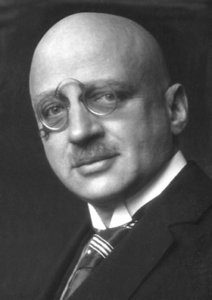 Haber was awarded the Nobel Prize for Chemistry in 1918 after discovering the Haber-Bosch process. This is a way of producing ammonia in large quantities. This process was crucial to creating fertilizer which could revolutionize agriculture and cut hunger. However, Haber was also instrumental in creating another chemistry marvel and that was the chlorine gases used during gas warfare during WW I.
Haber was awarded the Nobel Prize for Chemistry in 1918 after discovering the Haber-Bosch process. This is a way of producing ammonia in large quantities. This process was crucial to creating fertilizer which could revolutionize agriculture and cut hunger. However, Haber was also instrumental in creating another chemistry marvel and that was the chlorine gases used during gas warfare during WW I.
Marie Curie
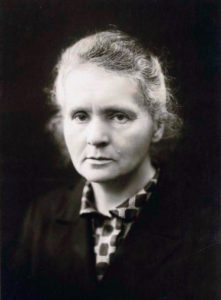 Marie Curie’s Nobel win was not controversial because of her winning – it was controversial because she nearly didn’t, while her male colleagues did. Curie was nominated in 1902 for her pioneering work in radiation, along with her colleagues Pierre and Henri Becquerel, but they were left out that year. The next year, only the Becquerels were nominated. When Pierre Becquerel learned that Curie was excluded, he informed the Nobel committee that he would not accept the prize unless Curie got hers. The committee blinked, afraid of the public shame, but they had their quiet revenge; Henry Becquerel received a 70,000 franc prize, while Curie and Pierre each received only half. It was far from the last time the Nobel committee would treat women in science as inferior to their male colleagues.
Marie Curie’s Nobel win was not controversial because of her winning – it was controversial because she nearly didn’t, while her male colleagues did. Curie was nominated in 1902 for her pioneering work in radiation, along with her colleagues Pierre and Henri Becquerel, but they were left out that year. The next year, only the Becquerels were nominated. When Pierre Becquerel learned that Curie was excluded, he informed the Nobel committee that he would not accept the prize unless Curie got hers. The committee blinked, afraid of the public shame, but they had their quiet revenge; Henry Becquerel received a 70,000 franc prize, while Curie and Pierre each received only half. It was far from the last time the Nobel committee would treat women in science as inferior to their male colleagues.
Joselyn Bell Burnell
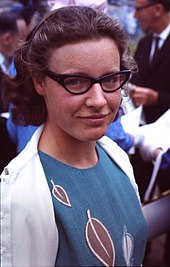 Just as Curie was nearly left out of the prize, Joselyn Bell Burnell was also not included at all when her colleagues Antony Hewish and Martin Ryle received the prize for physics in 1974. Joselyn Bell Burnell was the female member of a trio of scientists who published a paper on the discovery of pulsars. It was Burnell herself, however, who actually discovered pulsars. After the publication of the paper, written with her two male partners, Burnell was entirely forgotten and Hewish and Ryle received the Nobel Prize for Physics for the discovery of pulsars.
Just as Curie was nearly left out of the prize, Joselyn Bell Burnell was also not included at all when her colleagues Antony Hewish and Martin Ryle received the prize for physics in 1974. Joselyn Bell Burnell was the female member of a trio of scientists who published a paper on the discovery of pulsars. It was Burnell herself, however, who actually discovered pulsars. After the publication of the paper, written with her two male partners, Burnell was entirely forgotten and Hewish and Ryle received the Nobel Prize for Physics for the discovery of pulsars.
Bob Dylan
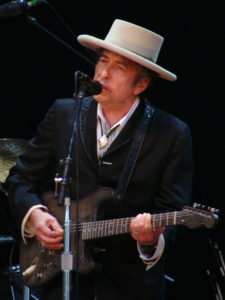 One of the most controversial things about the Nobel Prize has been the inconsistencies that follow who the award is given to and who it is not given to. One great example is the fact that the Nobel Prize for Literature was awarded to Bob Dylan in 2016. Although no one denies that Dylan has made a great contribution as a lyricist and poet, it is baffling how great authors such as Mark Twain, James Joyce, Leo Tolstoy, George Orwell, and Arthur Miller were denied the award in their day.
One of the most controversial things about the Nobel Prize has been the inconsistencies that follow who the award is given to and who it is not given to. One great example is the fact that the Nobel Prize for Literature was awarded to Bob Dylan in 2016. Although no one denies that Dylan has made a great contribution as a lyricist and poet, it is baffling how great authors such as Mark Twain, James Joyce, Leo Tolstoy, George Orwell, and Arthur Miller were denied the award in their day.
Some argue that these inconsistencies destroy the standard of excellence that the Noble Committee was intended to uphold. On the other hand, Patti Smith performed at Dylan’s ceremony, quite obviously the coolest thing to ever happen at the Nobel Banquet.
Related:
